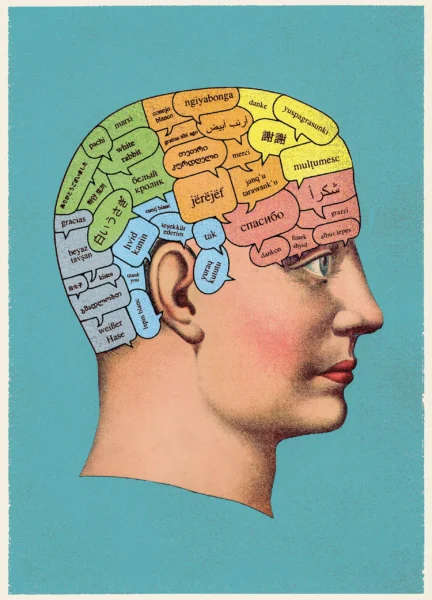Picture this: you’re in a small café in Madrid. The sun is shining, there isa table of tapas in front of you, and you’re ready to order some more. The waiter approaches you, and instead of flexing your Spanish skills, you open Google Translate, stutter through a robotic-sounding sentence, and receive a polite but slightly amused smile. Did you save time? Sure. Did you miss out on a genuine interaction? Absolutely.
In the age of AI, where apps and gadgets can instantly translate speech, texts, and even conversations in real time, the question keeps popping up: why should we still bother learning languages? After all, technology seems to have cracked the code, right? As an international relations student, I’ve thought about this a lot (mostly while drowning in irregular verb tenses). Yet, as tempting as it might be to rely on AI, learning languages is about way more than just translating words.
Let’s get one thing straight: AI is incredible. But when it comes to capturing the nuance of human language? Not so much. Sure, AI can help you get the gist of a conversation, but it often misses out on subtleties—context, humour, cultural references, and, most importantly, tone. Languages are deeply tied to culture, history, and identity. When you learn a language, you’re not just memorising vocabulary or grammar rules—you’re learning how people in that culture think, feel, and communicate. I’ve learned more about a country’s values, humour, and quirks by speaking its language than any textbook or AI app could ever teach me. And honestly, it’s that connection that makes it worth it.
As someone studying international relations, I’ve realised that diplomacy, global business, and cross-cultural exchange aren’t just about shaking hands and signing treaties—they’re about building relationships. And nothing builds a bridge faster than speaking someone’s native tongue. Being able to communicate in another language shows a level of respect and commitment that translation apps just don’t. It’s the difference between giving a speech through an interpreter and addressing a crowd directly in their own language—one feels distant, the other personal. When you speak the language, you’re not just heard—you’re understood.

Okay, so AI is here to stay, and yes, it’s getting better at what it does. But relying entirely on technology comes with risks. For starters, it can make us lazy. Why bother learning how to say, “Excuse me, where’s the bathroom?” in Japanese when your phone can do it for you? But by letting AI take over these little interactions, we miss out on learning how to be more empathetic and adaptable in real life – the very skills that make us human. Plus, consider this: what if the technology fails? Your phone dies, Wi-Fi’s out, and suddenly, you’re stranded in a foreign city, unable to communicate beyond a few gestures and smiles. Knowing a language gives you independence. It’s your key to navigating the world with confidence, even when gadgets glitch.
Furthermore, beyond practical benefits, there’s something deeply satisfying about learning a language. It’s a challenge—a real one. You’ll mess up, you’ll be confused, and yes, you’ll probably embarrass yourself. But there’s nothing quite like the thrill of finally getting it right. Whether it’s ordering your coffee correctly in French or understanding a Spanish meme, those small wins give you a sense of accomplishment that no AI app can replicate.
So, is it still worth learning languages in the age of AI? Most certainly so. AI is a fantastic tool, but learning a language is a uniquely human endeavour. It’s about connection, culture, and understanding the world on a richer, more personal level. Sure, we’ve got technology to make things easier, but that doesn’t mean we should let it do all the work for us – at least not all the time. So next time you’re tempted to rely on an app to speak for you, ask yourself this: do you want to just be understood, or do you want to truly connect? For me, the answer is clear. I’m keeping my language books, even if AI is learning faster than I ever could.
Featured image by New York Times.







